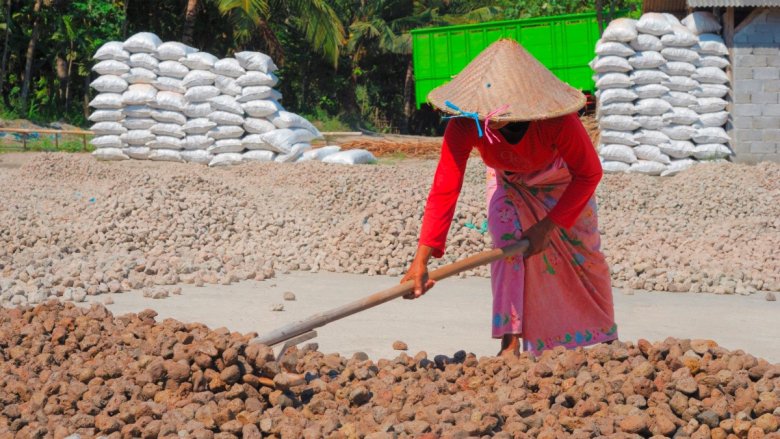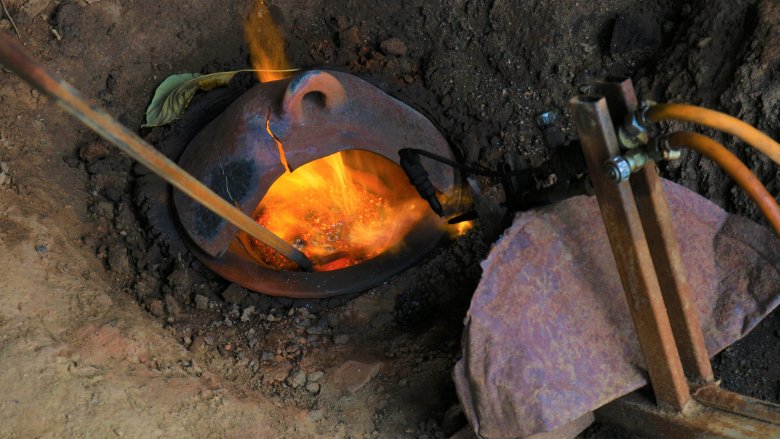However, more can be done to design and advocate for non-biased gender equality policies and regulations across extractive sectors. Most mining activities take place in areas with long histories and well-established customs and traditions that vary from region to region. A good starting point for promoting greater gender equity is collecting gender-disaggregated information—social and economic data that measures differences between females and males and that is captured in a national database. This information can reveal patterns and trends that show where more work needs to be done.
Partnering with the World Bank, the Indonesian government created the Natural Resources for Development (NR4D) Program to strengthen Indonesia’s natural resources management and governance, with an emphasis on marginalized groups, including women. Fully funded by the Canadian government, the World Bank has implemented the program since 2015, providing technical assistance and working with both small- and large-scale artisanal mining operations.
The program analyzed the social-economic make-up of local communities where three large-scale mining companies operate and where several artisanal and small-scale gold mining activities occur. It examined gender-related issues in workplaces, families, and communities through participative stakeholder consultations and social mapping exercises. Researchers examined individual lives in specific communities or settings to understand how the roles of men and women affect everyday interactions. This approach helped identify corrective actions for promoting gender equality at mining locations throughout the country while considering Indonesia’s rich cultural heritage. For example, supporting women’s education and career further breaks down occupational gender segregation.
To address issues faced by marginalized groups, the program forged a partnership between Yayasan Tambuhak Sinta, a foundation established by a mineral exploration company to help communities work with local governments, and Women in Mining and Energy, a non-governmental organization that advocates for gender issues in the mining and energy sectors. The NR4D program also contributed to the World Bank’s involvement in a global effort to collect data on the impacts of COVID-19 on communities affected by artisanal and small-scale gold mining operations.
On September 28–29, 2021, the program sponsored a virtual national seminar entitled Gender and Policy Reflections in Indonesia’s Extractives Industry: Towards Sustainable Development. Leading global and national experts in gender-related issues and extractives presented insights and experiences from different countries that could be applied in Indonesia. A common theme was that stakeholder solidarity is key to improving gender-mainstreaming processes in the extractives industry. The event was organized by the World Bank, Women in Mining and Energy, and the Association of Indonesian Mining Professionals.
Despite progress, more work needs to be done.
“Extractive industries contribute a significant portion of Indonesia’s GDP and have become major livelihood sources in Indonesia,” said Ms. Gayle Barnett, Acting Head of Cooperation at the Embassy of Canada to Indonesia. “While the government of Indonesia and some mining companies are making strides in addressing gender inequality in the sector, gaps remain in the mining workforce in Indonesia.. In addition, legal frameworks and sector-specific policies need to be strengthened to ensure gender responsiveness at all levels, including in the context of artisanal and small-scale gold mining practices where the status of women is more vulnerable.”
She added that aligning mining operations with the UN Guiding Principles on Business and Human Rights would require up-front work, such as conducting assessments to examine their impact on communities, gender equality, and human rights “before the shovel hits the ground.”
Fostering a collaborative and inclusive approach that includes gender-sensitive perspectives could lead to better and more sustainable management of Indonesia’s extractives sector. The findings from the NR4D Program studies will guide policymakers, corporations, communities, and other stakeholders as they work toward more inclusion of women and improved local benefit-sharing in the extractives sector in Indonesia. Recommendations from these studies will lead to policies that will promote equal participation of women and men across the supply chain, equal access to capital, technology, capacity-building opportunities, and decent jobs for all.
Last Updated: Mar 22, 2022


